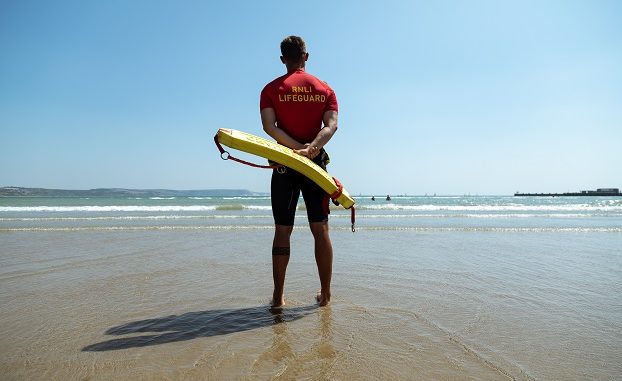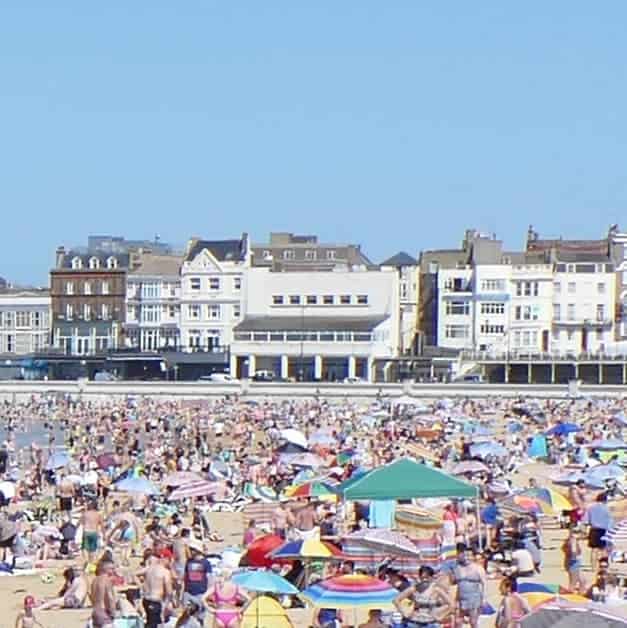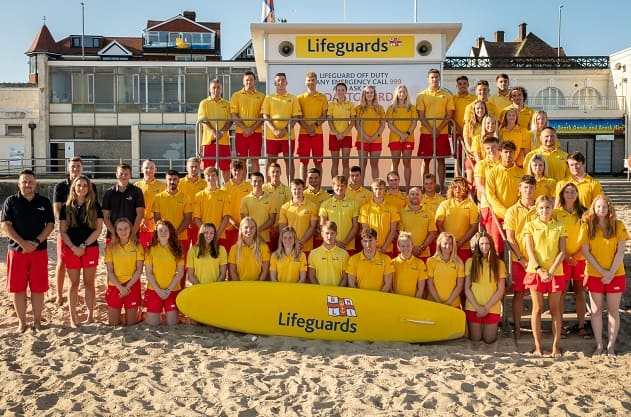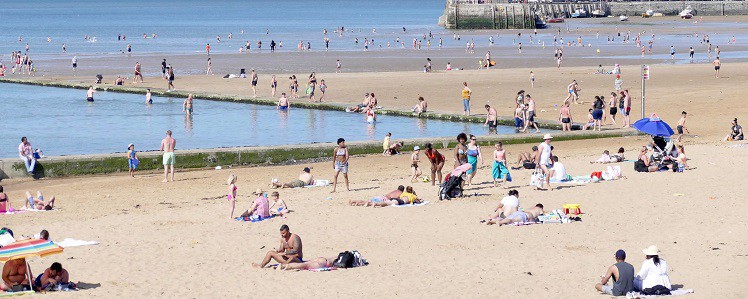
The chief executive of the RNLI has written an open letter revealing the stark reality of trying to provide lifeguards on UK beaches with little notice from government and a huge funding shortfall.
Writing today (May 26) RNLI Chief Executive Mark Dowie revealed that during weekend, which saw jam-packed beaches, two people lost their lives and RNLI crew had their busies weekend of the year.
In Thanet ,just two beaches out of the usual 10 will have lifeguard cover this Summer. Lifeguards are due to start covering Viking Bay from May 30, dependent on the arrival of personal protective equipment, with Margate following on June 20.
But Ramsgate, Botany Bay, Joss Bay, Stone Bay, Westbrook, St Mildred’s, West Bay and Minnis Bay beaches will have no cover under the current arrangements.
Mr Dowie said: “Despite our warnings that there were no lifeguards on patrol this weekend, crowded beaches, hot weather and big waves meant our lifeboat crews had their busiest weekend so far this year. At least two people lost their lives.
“This puts the RNLI in an impossible situation. With thousands flocking to English beaches now lockdown restrictions have been eased, we must strike a balance that keeps the public and our lifeguards safe.

“Safety advice and warnings will only go so far when people are desperate to enjoy some freedom after weeks of lockdown. But, as a lifesaving charity, the RNLI cannot stop people going to beaches.
“Rolling out a lifeguard service – especially in a pandemic – is not as simple as putting a lifeguard on a beach. We found out about the easing of lockdown restrictions in England at the same time and in the same way as the general public. Contrast that with shops, which were given three weeks’ notice and even car showrooms have been given 7-days warning to prepare.
“We have to work out how to do in-water rescues and give first aid – normally conducted at close quarters and often with people coughing up water. We have to find PPE that will work on a beach and in the water – visors and aprons are no good on a rescue board. And we have to train our lifeguards in procedures to reduce the risk of infection. All this takes time and we learnt of the lifting of restrictions at the same time as everyone else.

“Lifesaving is our priority. But the fundamental sustainability of the charity is also a consideration. Local authorities contribute just 20% of the £20million needed to pay for a normal lifeguard season – the remaining £16million comes from RNLI donations. Right now, our charity faces an expected £45million shortfall in funding by the end of the year because many of our fundraising activities have had to stop.
“No-one is to blame for the situation we find ourselves in. We’re asking everyone to help manage an impossible situation, so please follow our safety advice and think before you head to the coast.”
Beaches have been chosen based on risk and popularity.

The lack of lifeguards may also impact on Blue Flag and Seaside Award status as safety is one of the conditions of those awards. Major non-compliance occurs when the beach does not comply with one or several criteria, with consequence for the health and safety of the beach user or to the environment. It could result in the flag being withdrawn immediately and for the rest of the season.
In Swale the council is trying to recruit lifeguards so the RNLI will provide cover for one and council paid lifeguards will patrol its other two beaches.
With beach lifeguard patrols significantly reduced the RNLI and HM Coastguard are advising the public not to use inflatables at all and for everyone, especially parents, planning a visit to a beach or the coast to follow this safety advice:
- Have a plan – check the weather forecast, tide times and read local hazard signage
- Keep a close eye on your family – on the beach and in the water
- Don’t allow your family to swim alone
- Don’t use inflatables
- If you fall into the water unexpectedly, FLOAT TO LIVE. Fight your instinct to thrash around, lean back, extend your arms and legs, and Float
In an emergency dial 999, and ask for the Coastguard
Find details about the UK Lifeguard Solidarity Group campaign at www.returntoshore.org

